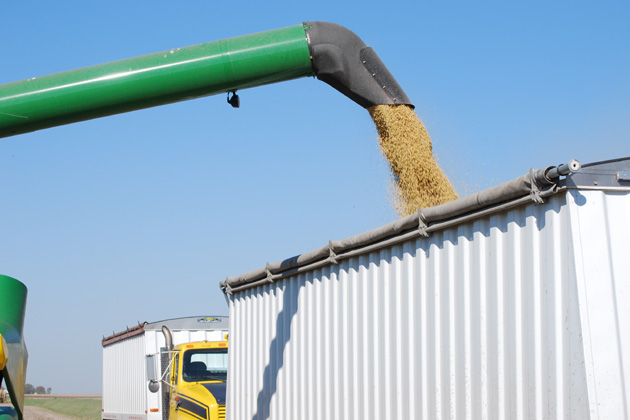
By Cole Lauterbach/Illinois Radio Network
SPRINGFIELD – While it may be one of the most controversial subjects sliding across your Facebook screen, advocates say using new genetic technologies to strengthen soybean crops and increase yields in Illinois are working.
Farmers, as well as the Illinois economy, are reaping the benefits.
Thanks to genetic mapping technology, farmers are able to protect soybean plants at all stages, from the time the plant emerges until it reaches maturity, according to Linda Kull, director of Strategic Research Programs with the Illinois Soybean Association.
“Genetic markers for cold tolerance and wet soil, genetic markers for disease resistance or drought tolerance, and also being able to stack all these traits in high-yielding lines without causing yield drag are some of the things that the major R&D companies are doing with these technologies,” Kull said.
Farmers have been seeing the results of optimizing their population of feed or row spacing, Kull said.
“Soybean yields and soybean acres planted in Illinois are increasing,” Kull said. “Soybean exports from Illinois have an impact on the Illinois economy.”
She added that the introduction of new traits has been pretty straightforward, but there have been some complications.
“Seed companies that are introducing the new herbicide trait technology into the market, they face obstacles until the technology and chemistry is fully approved for use,” Kull said, referring to genetic modifications that make the plants resistant to herbicides that would otherwise kill them.
The primary criticism is that modified crops are dangerous to ingest and harm livestock, which is then eaten. But much of that information is contained to personal crusades via social media. A massive study of more than 100 billion animals by UC Davis’ Department of Animal Science found no significant changes in animal mortality after GMO feed was introduced in the late 1990s.
Combining traits for successful soybean crop yields has been deemed safe, Kull said.
“Are these new technologies safe?” Kull said. “Yes, and they have received approvals from the [U.S. Department of Agriculture] and the [U.S. Food & Drug Administration], and they are safe for consumers and livestock and the environment.”






